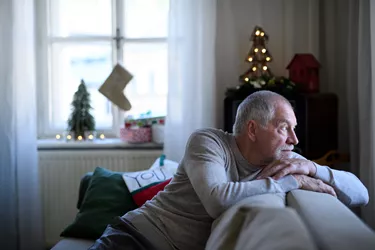Support when you leave hospital
We're calling for everyone leaving hospital after a mental health crisis to be followed up within 48 hours.
We’re campaigning to make sure everyone leaving hospital after a mental health crisis gets the right care and support, starting with a follow-up visit or call within 48 hours. Here’s some background to our campaign – what we’re doing and why.
Our new campaign has come out of our ongoing work to improve mental health crisis care. It focuses on one aspect that hasn’t had so much attention – what happens when you leave hospital. Whether you’ve been in hospital for days or months, you need the right care and support to help you recover and put your life back together.
Over 850 people took our survey about their experiences of care after they left hospital for a mental health problem. We’ve heard from people who were discharged with no notice, let alone a say about whether they were ready to go, even in some cases when still in crisis. In an earlier survey that YouGov did for us, almost one in four people thought they were discharged when they were not well enough to leave hospital. Sometimes it is the other way round, with people stuck in hospital while care is being arranged – or organisations are arguing over who should pay for it.
Some of you told us that you had no support, were left to cope alone and feeling abandoned, with long waits for therapy or medical appointments. Some people were discharged to homelessness or abusive situations. Other people had much better experiences which really underlines what a huge difference the right care and support makes; being at home after a hospital stay can be difficult enough even with good care. NICE (National Institute for Health and Care Excellence), the organisation which provides national guidance and advice to improve health and social care, sets out the care you should get.
There’s a lot to do to make this level of care a reality everywhere, so that people have the best chance of getting well and don’t go back into crisis.
For our latest campaign we’ve started with a focus on the follow-up you should get when you’re discharged from hospital. People are especially vulnerable during the first few days after being discharged from hospital and this is when someone is most likely to take their own life. Our survey found that people who weren’t followed up in the first week were twice as likely to attempt suicide.
"Seven days is simply too long to wait when someone’s recovery is still at risk."
Mental health services are supposed to check on everyone within seven days of discharge, or 48 hours where someone is at greater risk. Follow-up can be face to face or a simple phone call to check someone is OK and getting the support they need. Seven days is simply too long to wait when someone’s recovery is still at risk. And even this follow-up isn’t always happening. We sent a Freedom of Information request to mental health service providers and found that at least one in 10 people aren’t getting any follow-up in the first week after leaving hospital. Most health boards in Wales couldn’t provide the information.
"We’re calling for everyone leaving hospital after a mental health crisis to be followed up within 48 hours."
We’re not the only people to say this. In their 2016 annual report, the National Confidential Inquiry into suicide and homicide by people with mental illness identified early follow-up on discharge as a way to reduce suicide risk and some providers are responding to this. The House of Commons Health Select Committee recommended this as well in their interim report and final report, published on 16 March.
We’re calling on NICE to change its guidelines to make sure everyone leaving hospital after a mental health crisis gets followed up within 48 hours. And we’re asking NHS England, the Welsh Government and mental health providers in England and Wales to play their part in making this standard.

See what we're campaigning on

Our campaigns
We'll fight your corner. We believe everyone with a mental health problem should be able to access excellent care and services. We also believe you should be treated fairly, positively and with respect.
Share your story with others
Blogs and stories can show that people with mental health problems are cared about, understood and listened to. We can use it to challenge the status quo and change attitudes.

















